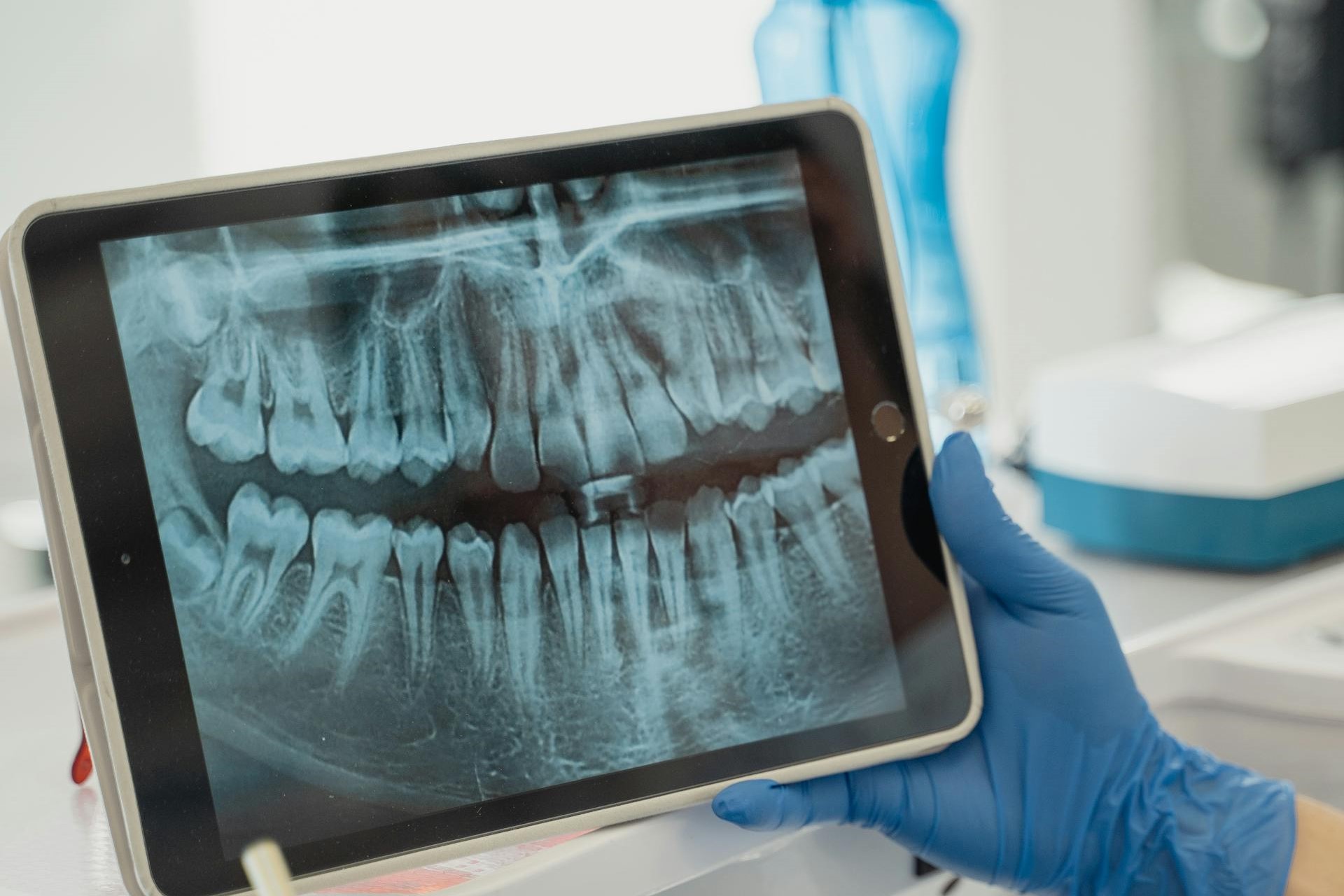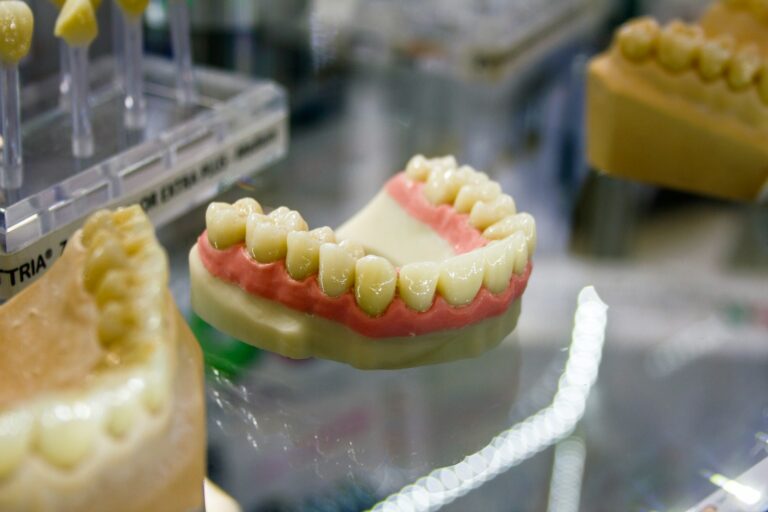
Dental implants have become a widely accepted solution for restoring smiles, but it is important to recognize that they come with their own risks and complications.
Potential issues such as infections, nerve damage, sinus problems, and allergic reactions are all factors that individuals should consider when contemplating this treatment. Understanding these potential pitfalls is essential, as knowing how to mitigate these risks can significantly impact the overall outcome.
This article will delve into the common complciations and risks of dental implants, offering practical tips to help ensure a smooth recovery process.
What Are the Risks of Dental Implants?

Dental implants are often seen as a life-changing option for replacing missing teeth, providing a range of benefits, including better aesthetics and improved dental health. However, it is important to recognise that, like any dental procedure, they come with certain risks that patients should consider before proceeding with oral surgery.
Being aware of these risks is essential for making an informed decision during a dental consultation. Possible complications can include infection, nerve damage, and even implant failure, which could result in bone loss or sinus issues.
Therefore, conducting a comprehensive patient assessment is crucial to identify any pre-existing conditions that may impact the treatment plan.
1. Infection
Infection poses one of the most significant risks associated with dental implants, which can occur if bacteria enter the oral cavity during or after the surgical procedure.
Such infections can arise from poor hygiene practices, inadequate post-operative care, or complications related to the surgical techniques employed. It is essential to be vigilant for early signs, such as increased swelling, redness, or discharge around the surgical site, as these may indicate a developing infection.
To reduce these risks, individuals should carefully adhere to post-operative care guidelines. This includes regularly rinsing with antiseptic solutions and following any prescribed medications.
Maintaining optimal oral health through consistent brushing, flossing, and routine dental check-ups is crucial in preventing oral complications that could jeopardise the success of dental implants.
2. Nerve Damage
Nerve damage is a potential risk associated with dental implant surgery, which can result in discomfort, numbness, or even chronic pain in the affected areas.
This complication often stems from improper surgical techniques or inadequate planning during the procedure. It is essential for dental professionals to possess a thorough understanding of the jaw’s anatomy and the surrounding nerves to navigate safely during the placement process.
Conducting rigorous patient assessments, including advanced imaging techniques such as 3D scans, can greatly diminish the likelihood of nerve injury.
By carefully evaluating the patient’s dental and medical history and performing comprehensive clinical examinations, practitioners can develop a more tailored surgical approach. This ensures optimal outcomes while minimising the risks related to nerve damage.
3. Sinus Problems
Patients may encounter sinus issues after dental implant placement, particularly when the implants are positioned in the upper jaw near the sinus cavities.
These complications can occur due to the close proximity of the dental implants to the maxillary sinuses, which may result in sinusitis or discomfort. This highlights the critical need for a thorough assessment of jawbone density before the surgery, as inadequate bone can increase the risk of such complications.
When the jawbone is determined to be insufficient, one potential solution is bone grafting, where additional bone material is introduced to provide the necessary support for the implants. This preparatory procedure not only improves the success rate of the surgery but also reduces the chances of post-operative sinus issues, ultimately leading to a more favourable outcome for the patient.
4. Allergic Reactions
Allergic reactions to dental materials used during procedures can present a risk for some patients, making it essential to disclose any known allergies during the consultation process.
These reactions may vary from mild irritations to severe anaphylactic responses, highlighting the importance of effective patient education on this matter. By informing patients about the potential risks associated with specific materials, healthcare providers give the power to individuals to take an active role in their care decisions.
Obtaining informed consent is vital, as it ensures that patients are aware of the possible implications of using certain dental products. Before any procedure, a comprehensive assessment of the patient’s medical history, including any previous allergic reactions or sensitivities, is crucial for preventing complications and ensuring a safe treatment experience.
5. Implant Failure
Implant failure is a significant concern that can arise from various factors, often resulting in bone loss and necessitating further interventions. One major contributor to this issue is inadequate healing time, which may hinder the implant’s ability to integrate effectively with the surrounding bone.
Another challenge is inadequate bone density, as insufficient support can compromise the stability of the implant. Therefore, regular follow-up appointments are essential for monitoring the healing process and promptly addressing any complications that may arise.
Furthermore, proper maintenance is crucial for extending the lifespan of implants. Timely adjustments and cleanings are vital for maintaining overall oral health. By establishing a comprehensive care routine, individuals can greatly reduce the risk of implant failure and promote a successful outcome.
What Are the Complications of Dental Implants?

Complications associated with dental implants can emerge even after a successful placement, potentially impacting both the overall clinical outcomes and patient satisfaction.
It is important to be aware of these possibilities to ensure comprehensive care and address any issues that may arise.
1. Peri-Implantitis
Peri-implantitis is an inflammatory condition that affects the tissues surrounding dental implants, often arising from inadequate oral hygiene and a lack of attention to post-operative care.
This condition typically presents with symptoms such as redness, swelling, and bleeding of the gums, as well as an increase in the depth of the periodontal pockets around the implant. Patients may also notice unpleasant odours or pus coming from the affected area, which can understandably be quite concerning.
There are effective treatment options available for peri-implantitis, including:
- Professional cleaning to remove plaque and calculus
- Local antimicrobial therapy
- Surgical intervention to regenerate any lost bone
Importantly, maintaining rigorous oral hygiene practices after implant placement is crucial in preventing this complication. The adherence to these practices by patients significantly impacts the long-term success of their dental implants. Regular dental check-ups and diligent personal care routines are essential in minimising the risk of peri-implantitis.
2. Nerve Damage
As previously mentioned, nerve damage can occur during surgery, which may lead to complications impacting the patient’s quality of life.
It is important for both patients and healthcare providers to understand the mechanisms behind this type of injury. Surgical techniques that prioritise nerve preservation can greatly reduce the risks associated with various procedures.
For example, employing advanced imaging and nerve mapping technologies enables surgeons to identify and steer clear of critical nerve pathways, ultimately enhancing patient safety.
Furthermore, diligent monitoring during the recovery phase is crucial for the early detection of any issues that may arise post-surgery. By being vigilant and proactive, healthcare professionals can help ensure a smooth healing process and effectively manage any potential complications.
3. Sinus Issues
Sinus issues can sometimes arise from dental implants, particularly when the placement gets too close to the sinus cavities, which can lead to various complications.
When this occurs, patients may experience discomfort, sinus pressure, or even sinus infections, underscoring the importance of a thorough dental assessment before any surgical procedures. A comprehensive evaluation not only identifies potential risks but also opens the door to exploring alternative treatment options.
For instance, if there is a concern about sinus involvement, procedures like sinus lifts or the use of mini implants could be considered to reduce complications while still achieving successful outcomes.
By understanding and addressing these sinus-related issues early on, patients can significantly enhance their recovery experiences and improve the success rates of their implants.
4. Implant Rejection
Implant rejection is an uncommon yet serious complication that may arise when the body fails to accept a dental implant. This issue is often linked to the patient’s medical history and potential allergic reactions.
Several factors are vital in determining the acceptance of an implant, such as pre-existing medical conditions, individual immune system responses, and past reactions to dental materials. It is crucial for healthcare professionals to conduct a thorough evaluation of the patient’s medical history during consultations to identify any possible concerns.
Additionally, patients need to be made aware of the surgical risks associated with dental implants, which can include infection, bone loss, or implant failure. These risks can significantly influence their overall experience.
Maintaining open communication about these considerations can lead to a smoother surgical process and better outcomes, ensuring that the body can accept the new dental fixture with ease.
How Can You Prevent Risks and Complications?

Preventing the risks and complications related to dental implants requires a proactive approach. This includes choosing qualified dental specialists and maintaining good oral hygiene practices.
Taking these steps can significantly enhance the success of the procedure and overall oral health.
1. Choose a Qualified and Experienced Dentist
Choosing a qualified and experienced dentist is essential for ensuring a successful dental implant procedure while minimising risks associated with oral surgery.
When selecting a dental specialist, it is important to assess their credentials, including their education, training, and the number of procedures they have successfully performed. An experienced practitioner will not only be familiar with the latest surgical techniques, such as flap surgery and sinus lifts, but will also focus on creating a comprehensive treatment plan tailored to meet each individual’s needs.
This plan should encompass pre-operative assessments, post-operative care, and ongoing maintenance of oral health, reinforcing the overall effectiveness of the dental implant process. A dentist who employs advanced dental imaging and minimally invasive techniques can significantly improve outcomes and reduce recovery times.
2. Follow Aftercare Instructions
Following aftercare instructions is crucial for promoting healing and minimising the chances of complications after receiving dental implants.
Proper post-operative care significantly contributes to a smooth and effective recovery process. It is important for patients to follow their dentist’s recommendations regarding diet, management of any discomfort, and maintenance of optimal oral hygiene.
This involves gentle brushing, using an appropriate mouthwash, and steering clear of hard or sticky foods that could interfere with the healing implant site. The importance of maintaining oral hygiene cannot be emphasised enough, as it plays a key role in preventing infections that could jeopardise the success of the implants.
By adhering to these guidelines, individuals can facilitate their healing process and set the stage for a durable dental solution.
3. Practice Good Oral Hygiene
Practising good oral hygiene is essential for maintaining dental health and preventing infections around dental implants. This includes routines such as regular brushing, flossing, and using mouthwash to eliminate harmful bacteria that can lead to plaque build-up and subsequent infections.
For individuals with implants, it is particularly important, as the risk of peri-implantitis increases without proper care.
The importance of patient education in this context cannot be overstated. By informing patients about the significance of these practices, we can encourage a long-term commitment to their dental care.
When patients understand how effective oral hygiene directly impacts the success of their implants and their overall oral health, they are more likely to follow recommended dental care routines.
4. Attend Regular Check-Ups
Attending regular check-ups and follow-up appointments with your dental specialist is essential for monitoring the success of your dental implants. These visits provide your dental professional with the opportunity to conduct thorough assessments, which include evaluating the condition of the implant site, the surrounding gums, and the overall health of your jawbone.
By engaging in ongoing patient monitoring, potential complications can be identified and addressed in a timely manner. Early detection of issues such as infections, bone loss, or alignment problems not only extends the longevity of the implants but also improves overall oral health.
Consistent evaluations allow patients to take a proactive approach to their dental care, ensuring that their investment in their smiles continues to yield positive results for years to come.
Frequently Asked Questions
What Are Dental Implants and How Do They Work?
Dental implants are artificial tooth roots that are surgically placed into the jawbone. They serve as a strong and stable foundation for replacement teeth. The implant itself is a titanium screw that fuses with the jawbone, allowing it to support a dental crown, bridge, or denture.
What Are the Risks of Dental Implants?
As with any surgical procedure, there are potential risks and complications associated with dental implants. Some of these risks include infection, nerve damage, implant failure, and damage to surrounding teeth or structures. However, these risks are rare and can be greatly minimised by choosing an experienced and qualified dental implant specialist.
What Are the Most Common Complications of Dental Implants?
The most common complications of dental implants include infection, implant failure, and nerve damage. Infection can occur if the implant site is not properly cleaned or if proper oral hygiene is not maintained. Implant failure can happen if the implant does not properly fuse with the jawbone or if there is undue pressure on the implant. Nerve damage can occur if the implant is placed too close to a nerve or if the nerve is injured during the placement process.
What Precautions Should I Take Before Getting Dental Implants?
Before getting dental implants, it is important to have a thorough examination by a qualified dental implant specialist. This will help identify any potential risks or complications, and the specialist can develop a treatment plan that is tailored to your specific needs. It is also important to follow pre- and post-operative instructions carefully to minimise the risk of complications.
Are There Any Long-Term Complications of Dental Implants?
In most cases, dental implants have a high success rate and can last a lifetime with proper care. However, there are some potential long-term complications that can arise, such as implant failure, bone loss, and peri-implantitis (inflammation and infection of the tissues surrounding the implant). These risks can be minimised by following proper oral hygiene and regularly visiting your dentist for check-ups.
What Should I Do If I Experience Complications After Getting Dental Implants?
If you experience any complications after getting dental implants, it is important to contact your dental implant specialist immediately. They will be able to assess the issue and provide the necessary treatment to resolve the complication. It is important to never ignore any signs or symptoms of complications, as early intervention can greatly improve the outcome.






